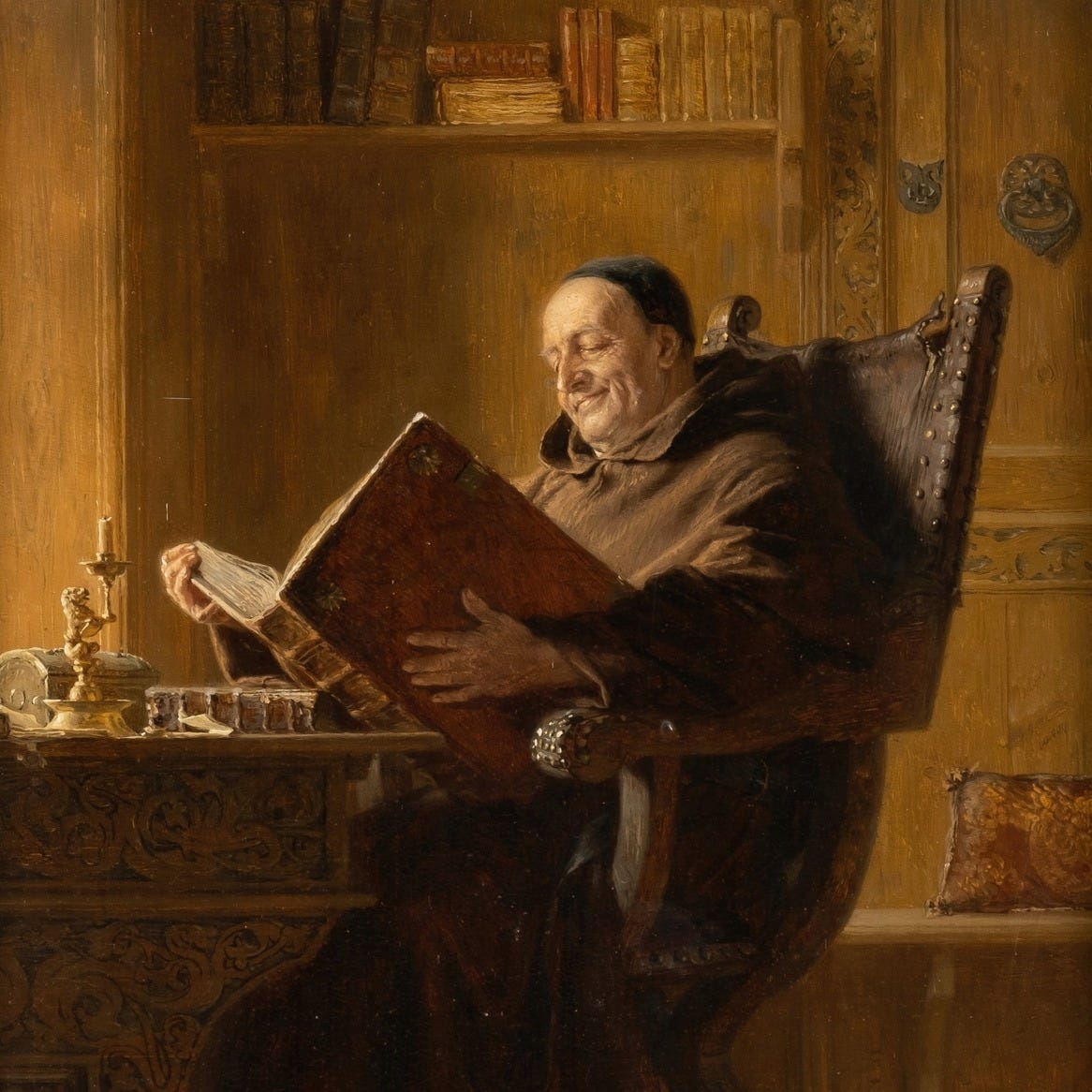Why English spelling will never make sense
The history of English spelling reform
At some point during your life as a reader of the English language, you may have wondered: Is it entirely sensible that the -ough endings in the words tough, though, and through are pronounced completely differently?
Or you may have asked yourself in frustration: Why does a language need a rule like “‘i’ before ‘e,’ except after ‘c’ …”?1
You may know some of the historical reasons for the mess that is English spelling, but it doesn’t change the fact that it is a mess. Every schoolchild struggles with it, and it’s cursed by everyone learning English as a second language.
Surely it would be better just to tear the whole thing up and start again!
If you’ve ever entertained these thoughts, you’re most definitely not alone.
In fact, you join a long and proud line of English spelling reformers stretching back almost a thousand years.
But the history of spelling reform in English is largely one of failure. Of all the schemes devised over the years, almost none have had any influence in changing how the language is spelled.
You're reading The Dead Language Society. I'm Colin Gorrie, linguist, ancient language teacher, and your guide through the history of the English language and its relatives.
Subscribe for a free issue every Wednesday, or upgrade to support my mission of bringing historical linguistics out of the ivory tower and receive two extra Saturday deep-dives (like this one) per month.
Why English spelling is crazy
The primary force that has led to the need for English spelling reform is the very same force that has proved the biggest obstacle to that reform: the history of the English language itself.
It’s a history which has turned English vocabulary into something like a layer cake: English has not only the base layer of words it has inherited from its Germanic roots (the, my, hand, eat), but also layers of words from Norse (they, egg, sky), French (people, challenge, surprise), Latin/Greek (formula, archaeologist), and the many other languages it has encountered around the world.2
This history of borrowing has led to the introduction of new sounds into the language: the zh sound in pleasure, for example, comes indirectly from French. It’s also led to new spelling conventions: French has made it so that we have to distinguish between hard and soft ‘g’: for example, compare the sound of the ‘g’ in crag with the one in age. But more significantly, this massive degree of borrowing has also led to entirely new sound patterns.
For example, in Old English, you could generally rely on the accent or stress on a word being on the first syllable, as it is still today in words like évery, lády, and Éngland. But borrowings from languages such as French and Latin have implanted other patterns, such as stress on the second last syllable, as it is in every word ending in -ation, or on the third last syllable, as in every word ending in -ify.
As a result, when you see an English word, you don’t instantly know where the stress should fall. There are patterns, to be sure, but no certainty. In many cases, you just have to know the word. Take respite, for example. The Oxford English Dictionary lists only one stress pattern: réspite, matching the pattern of récord, rébel, réfuge.
But most native speakers I hear stress it on the second syllable: respíte, matching the pattern of regrét, recéipt, relíef. What is “correct” is not the point: the point is the existence of multiple patterns which could apply, and no way to adjudicate between them other than just knowing the word.
The presence of all these different patterns in the language has made it harder to establish a strong link between spelling and sound.
The forces weighing against spelling reform also arise from the unique history of the English language — but we’ll get to those forces later. For now, let’s look at some of the most notable attempts at reform themselves.
Orrm and the Orrmulum
The history of English spelling reform began in earnest in the 16th century, when all of the features mentioned above were firmly in place, creating chaos in English spelling. But there is one reform that predates this period by many centuries.
In fact, the very first thing we could call “spelling reform” happened even before the influx of most French words. This was Ormulum, written by a priest named Orm between AD 1150–1180. Or, if we’re using his system, we’d have to say that a priest named Orrm wrote a book called Orrmulum.
Orrmulum was a book of homilies written in verse: homilies are commentaries that explain scriptural readings. Orrm’s homilies first restate the meaning of a passage from the Bible read at Mass — these change throughout the year — and then explain their relevance to the congregation. The language is an early form of Middle English. Here’s an example:
Þe laffdiᵹ wass wurrþenn þurrh Godd
Off Haliᵹ Gast wiþþ childe
‘The lady had become through God
From (the) Holy Ghost with child’
(Ormulum 1969–1970)
In Orrm’s time, which was still relatively soon after the Norman Conquest (AD 1066), local priests were largely speakers of Norman French. Orrm wanted to make sure that these French-speaking priests were able to pronounce English correctly so that they could be understood by their parishioners. As a result, he devised the earliest documented attempt to spell English systematically.
Orrm’s big innovation was marking long and short vowels differently. Vowels in Old and Middle English came in long and short pairs, where the long vowels are similar in sound to the short vowels, but are just held for longer. But the difference was never marked in Old English writing. Typically, in modern editions of Old English texts, we mark the difference with a macron over the vowel when long and leave it blank when short. So we have words like Old English God ‘God’ vs gōd ‘good.’
Orrm was the first to mark this difference, but he used a different strategy than modern editors use. Look at how Orrm writes the word meaning ‘God’: Godd. In Orrm’s system, it’s the doubled consonant after the vowel that tells the reader that it’s a short vowel. When he wants to write the word meaning ‘good’, he writes it with a single consonant after, as in this line:
⁊ Crist wass hirde god inoh
‘And Christ was (a) shepherd good enough’
(Ormulum 3598)
By the way, that ⁊ is what’s called a Tironian et. It means and — think of it like a medieval version of an ampersand (&).
Unfortunately, Orrm’s innovations never spread beyond his one work. In fact, we’re not certain that his work was ever copied. The Orrmulum manuscript we have comes to us on low-quality parchment, as if it were a draft. But beyond that one draft, there’s no evidence that all of Orrm’s hard work had any impact at all.
Cheke and the curse of the long vowels
On that dreary note, let’s fast-forward to the next attempt to rationalize English spelling, which came in the 16th century, after the Middle English period had come to an end. By this point, the English language resembled, in broad strokes, the English of today — which is why we call it Early Modern English.
This was the age of printing and of a flourishing of classical learning in England: the English Renaissance. And as the English were rediscovering the Romans and the Greeks, they were also acquiring for themselves a new national identity: one in which the English language would play a leading role. Remember that this is also the age of Spenser and of Shakespeare. But if English was to be the vehicle of great literature, it would need to be tamed.
This was the task that the men of letters of the 16th century set for themselves: to make a respectable written language out of English. The first of these reformers was Sir John Cheke, a scholar of Greek. Cheke wrote a translation of the Gospel of Matthew into English using a writing system of his own invention:
Then yͤ devel carieth him into yͤ holí cítee and setteth him on yͤ pinnacle of yͤ temple, and saieth vnto him. Jf ýow be yͤ sõn of god throw thiself douneward. For it is writin, He hath charged his angels with yow, and yͤi schal carí yͤ in theer armes, lest ý foot might stumble at a stoon. Jesus said vnto him Thow schalt not tempt yͤ L. thi god.
‘Then the devil carrieth him into the holy city and setteth him on the pinnacle of the temple, and saith unto him. If thou be the son of God, throw thyself downward. For it is written, “He hath charged his angels with thee, and they shall carry thee in their arms, lest thy foot might stumble at a stone.” Jesus said unto him, “Thou shalt not tempt the Lord thy God.”’ (Matthew 4:5–6)
One curious feature, from the modern perspective, is the use of ‘y’ to spell words now spelt with ‘th’: yͤ for the, ýow for thou, yͤi for they. These really aren’t ‘y’ per se — instead, they represent an older character ‘þ’ (pronounced thorn). The thorn character was a way of writing the ‘th’ sound in Old and Middle English. But in handwriting, thorn had evolved to look a lot like ‘y’ — so the ‘y’ characters in Cheke’s orthography actually represent ‘th.’
That wasn’t one of Cheke’s innovations, mind you: what was an innovation was that Cheke used this ‘y’ character only for the ‘th’ sound, and almost never in the ways we use ‘y’ today, to spell vowels in words like thy (Cheke has thi) and consonants in words like sayeth (Cheke has saieth). And yes, I do realize the irony in illustrating our usage of ‘y’ today using words like thy and sayeth!
Another innovation of Cheke’s was similar to Orrm’s: he wanted to mark the long vowels of English consistently. By Cheke’s time, the long vowels of Middle English had started to change in their pronunciation: not all of them were simply long versions of their short equivalents. For example, the long ‘a’ in made was beginning to sound different from the short ‘a’ in mad — today, of course, the two sounds are completely different.
But, however the long and short vowels sounded, they still needed to be distinguished somehow in writing, at least according to reformers like Cheke.
Three main strategies for marking this difference had grown up over the Middle Ages:
Long vowels could be marked with the silent ‘e’ after the following consonant, such as in mote, mate, mete — in many cases, this ‘e’ was once pronounced, but it eventually became a silent marker that the preceding vowel was long.3
Long vowels could be marked by doubling the vowel, such as in meet and moot. This makes sense, as the vowel was held for longer, so why not write it twice? This tended to happen mostly with ‘e’ and ‘o.’
Short vowels could be marked by writing a following consonant double, as in happen, litter, butter. If this looks familiar, it should — this was Orrm’s solution from back in the 12th century!
Cheke wanted to move towards a single system for indicating which vowels were long: he preferred doubling vowels to the silent ‘e,’ as you can see in his stoon for stone. Other examples in Cheke’s translation of Matthew include taak, prepaar, gaat for take, prepare, gate.
Overall, Cheke’s reforms were quite modest and within the existing traditions of English spelling. His contemporary and friend Sir Thomas Smith would produce in 1568 something altogether more radical.






